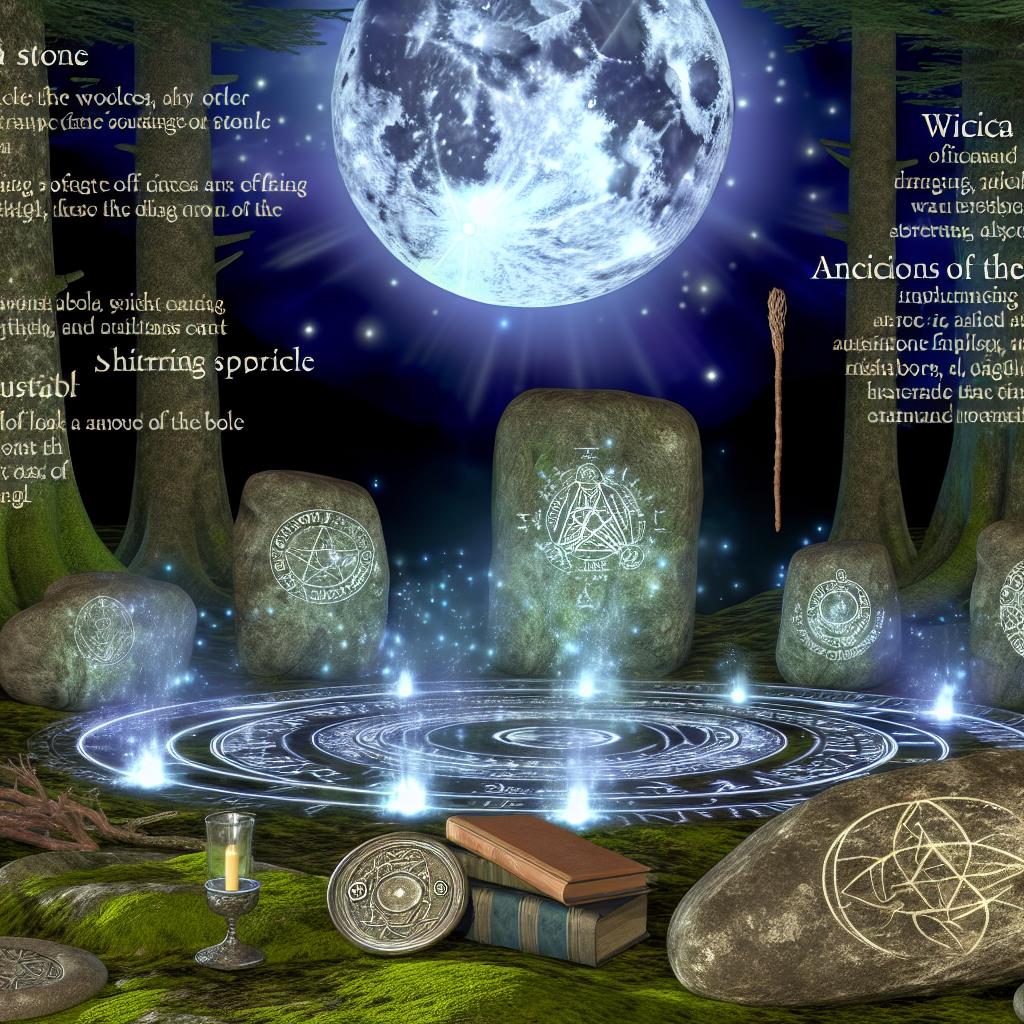
The Emergence of Wicca
Wicca is a modern pagan, witchcraft religion that was developed in the early to mid-20th century. It is recognized as a contemporary revival of ancient pagan practices and beliefs. Although its roots draw deeply from ancient pagan traditions, the formation of Wicca as it is known today began with a blend of both folklore and the creative contributions of early 20th-century figures.
Influences and Early Inspirations
The synthesis leading to Wicca’s emergence came from various historical influences. Practices that are now labeled as Wiccan were inspired by Western esotericism, ceremonial magic, and folklore. Additionally, the 19th and 20th centuries saw a renewed interest in pre-Christian religions, which also shaped the development of Wiccan traditions.
The interest in reviving ancient beliefs was part of a broader cultural movement that sought to reconnect with nature and challenge established religious norms. This shift was partially a response to the industrialization and modernization that distanced people from natural rhythms and indigenous spirituality. Consequently, scholars and enthusiasts began to delve into ancient texts and revive rites that had been largely forgotten or marginalized.
Gerald Gardner’s Role
A pivotal figure in the establishment of Wicca was Gerald Gardner, an English Wiccan who claimed to have been initiated into a coven of witches in the 1930s. Gardner’s efforts to publicize witchcraft and document its practices were instrumental in bringing Wicca into a broader cultural context. In 1954, Gardner published “Witchcraft Today”, where he outlined the structure and beliefs of what would become Wicca. Gardner’s work borrowed from a variety of sources, including folklore and 19th-century occultism.
Gardner’s publications played a crucial role in legitimizing Wicca and attracting followers who resonated with his synthesis of ancient and modern beliefs. His writings set the groundwork for what would become a structured religious path, complete with rituals, ethical guidelines, and theological underpinnings that appealed to those seeking spiritual alternatives.
The Influence of Doreen Valiente
Doreen Valiente, another significant figure in Wicca’s development, collaborated closely with Gardner. She is credited with refining many of Gardner’s initial writings and rituals, ensuring that they aligned more closely with the emerging Wiccan philosophy. Her input played a crucial role in shaping the modern Wiccan movement.
Valiente’s role is often seen as a balancing force, providing a poetic and philosophical touch to Gardner’s sometimes rigid structures. She emphasized the importance of personal spiritual experience and mysticism, which helped to broaden Wicca’s appeal. Her contributions are a testament to the collaborative nature of Wicca’s formation, illustrating that it is not the product of a single voice but of a community seeking a shared vision.
Defining Characteristics of Wicca
Wicca is often characterized by its duotheistic belief system, involving the worship of a Goddess and a God, and its association with nature-based cycles and rituals. Wiccans celebrate seasonal festivals known as the Sabbats, which include holidays like Samhain and Beltane. A distinguishing principle of Wicca is the Wiccan Rede, which underscores the ethical tenet of “An it harm none, do what ye will.”
The emphasis on a Goddess and God reflects Wicca’s roots in a dualistic view of divinity, contrasting with monotheistic religious systems. This perspective allows Wiccans to perceive balance in nature and spirituality, recognizing both masculine and feminine principles as essential and complementary.
Additionally, Wiccan rituals are designed to attune participants with natural cycles, marking the changing of seasons and celestial events. These celebrations are not only acts of reverence but also opportunities for practitioners to align with the energies present at different times of the year.
Diverse Traditions Within Wicca
While Gardnerian Wicca is one of the earliest strands, the religion has diversified into numerous traditions, each with its own interpretations and practices. Some well-known Wiccan traditions include Alexandrian, Dianic, and Eclectic Wicca. Each tradition contributes uniquely to the tapestry of the Wiccan movement.
**Gardnerian Wicca**: This is the tradition directly linked to Gerald Gardner, emphasizing coven-based practice and initiation. It is often seen as more structured, with established hierarchies and specific rituals.
**Alexandrian Wicca**: Founded by Alex Sanders in the 1960s, this tradition is similar to Gardnerian but incorporates more ceremonial magic. It often has a more eclectic approach, blending various esoteric teachings.
**Dianic Wicca**: Focusing predominantly on the Goddess, this branch is known for its feminist orientation. It often excludes worship of the God and centers around women’s mysteries and empowerment.
**Eclectic Wicca**: As the name suggests, this is a more flexible form of Wicca, allowing practitioners to draw from various traditions and practices to create a personalized spiritual path.
This diversity reflects Wicca’s adaptability and its openness to different interpretations, making it accessible to a wide array of individuals seeking spiritual fulfillment.
Conclusion
The journey of Wicca from a nascent movement in the mid-20th century to a recognized religious path today involves a mix of historical, cultural, and individual contributions. It remains a dynamic, living religion with adherents worldwide, continuing to adapt and incorporate diverse influences in the spirit of its origins.
Wicca’s evolution is ongoing, with new generations of practitioners contributing to its development. Its appeal lies in its fluidity and the freedom it offers individuals to explore spirituality in a way that resonates personally, making it a lasting presence in the contemporary spiritual landscape.
For more information on Wicca, you may explore detailed resources from organizations such as Witchvox or The Pagan Federation.
